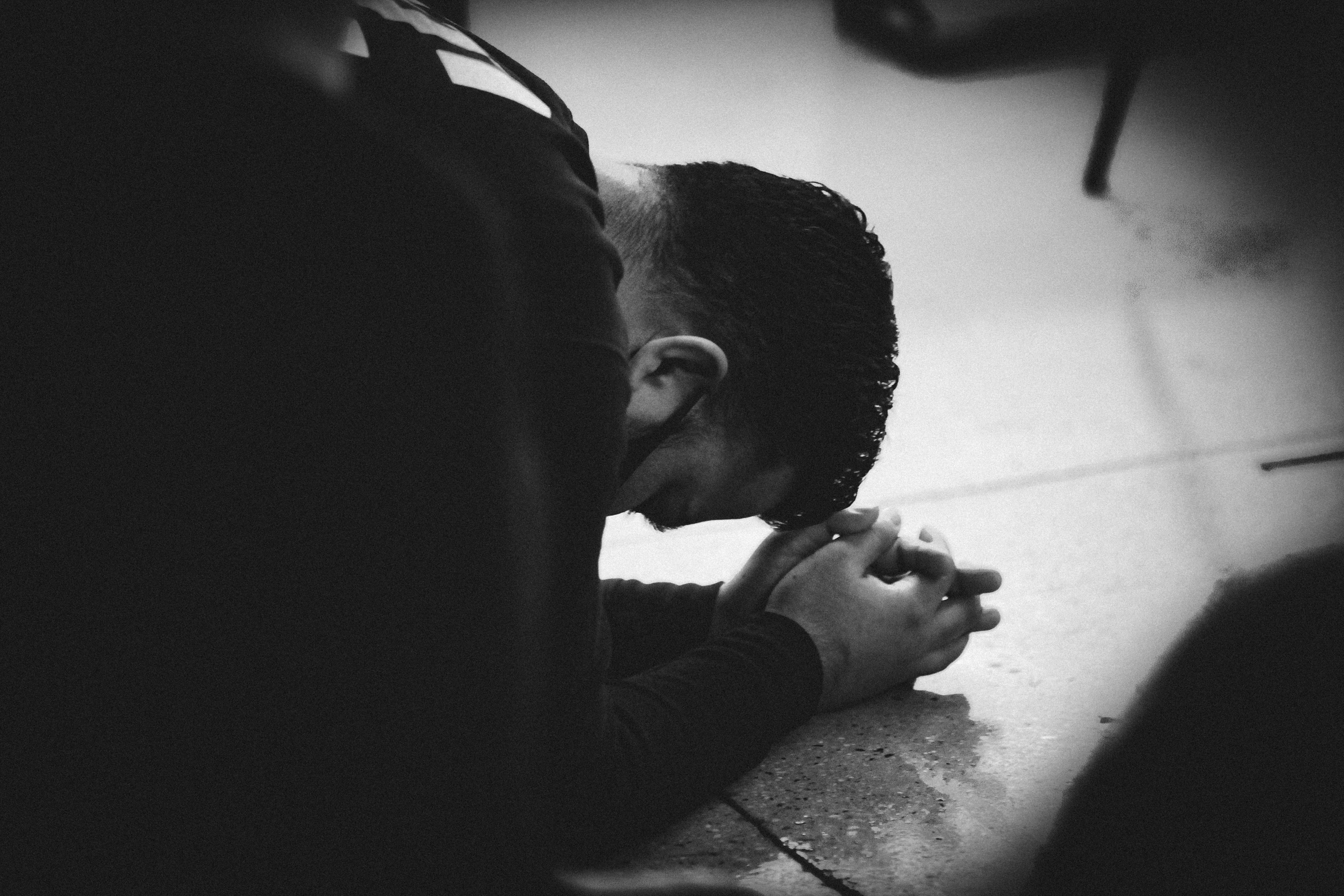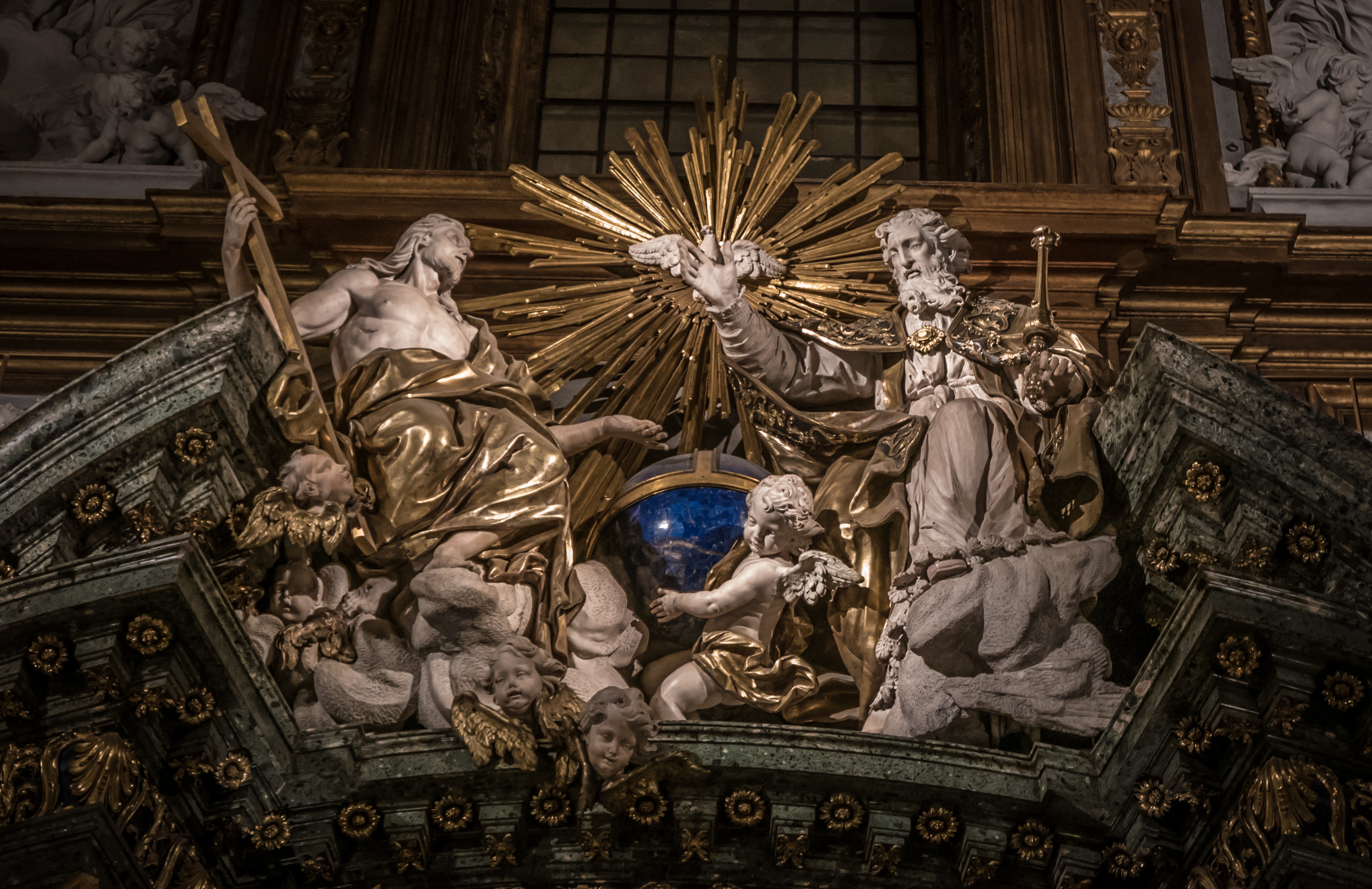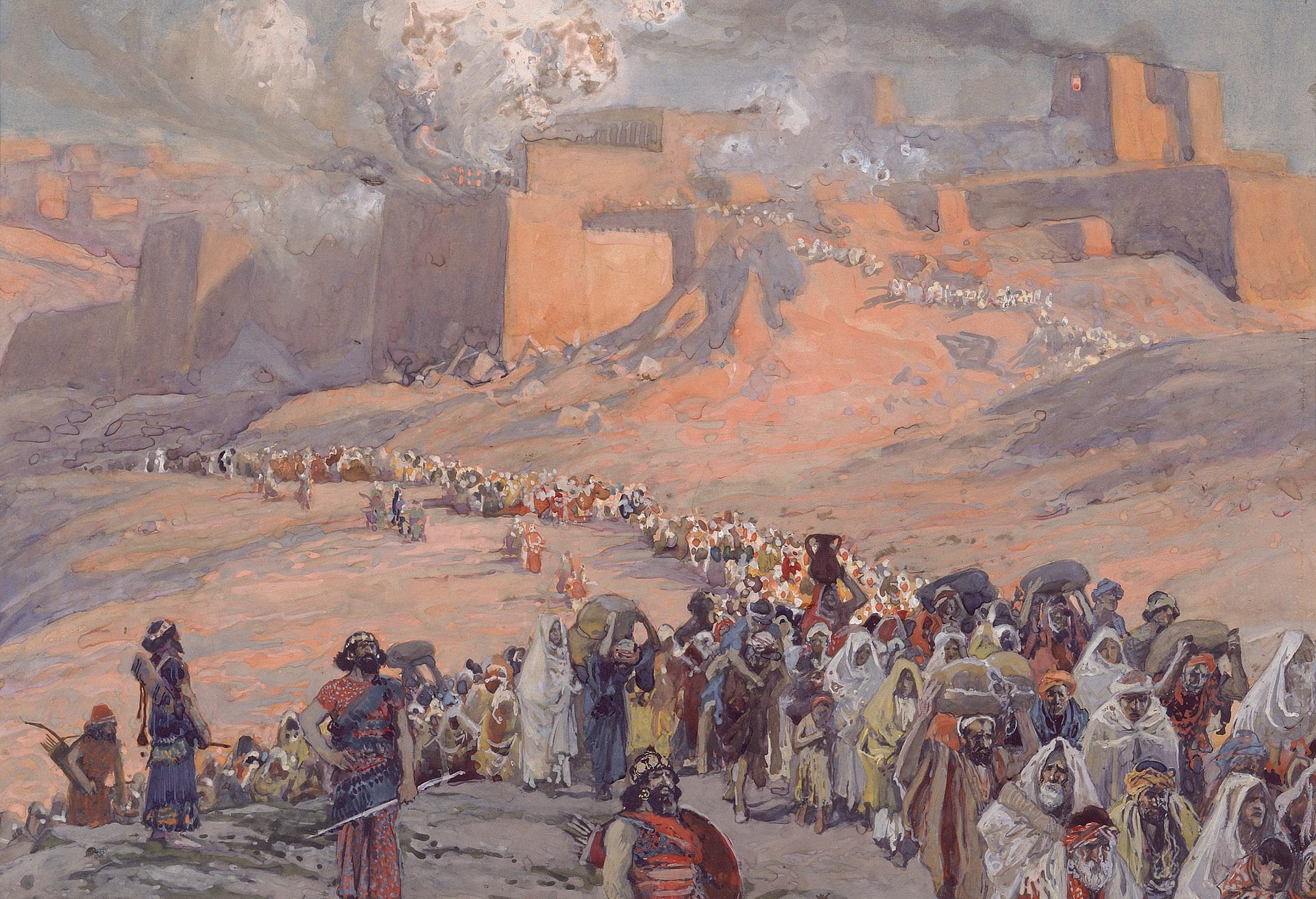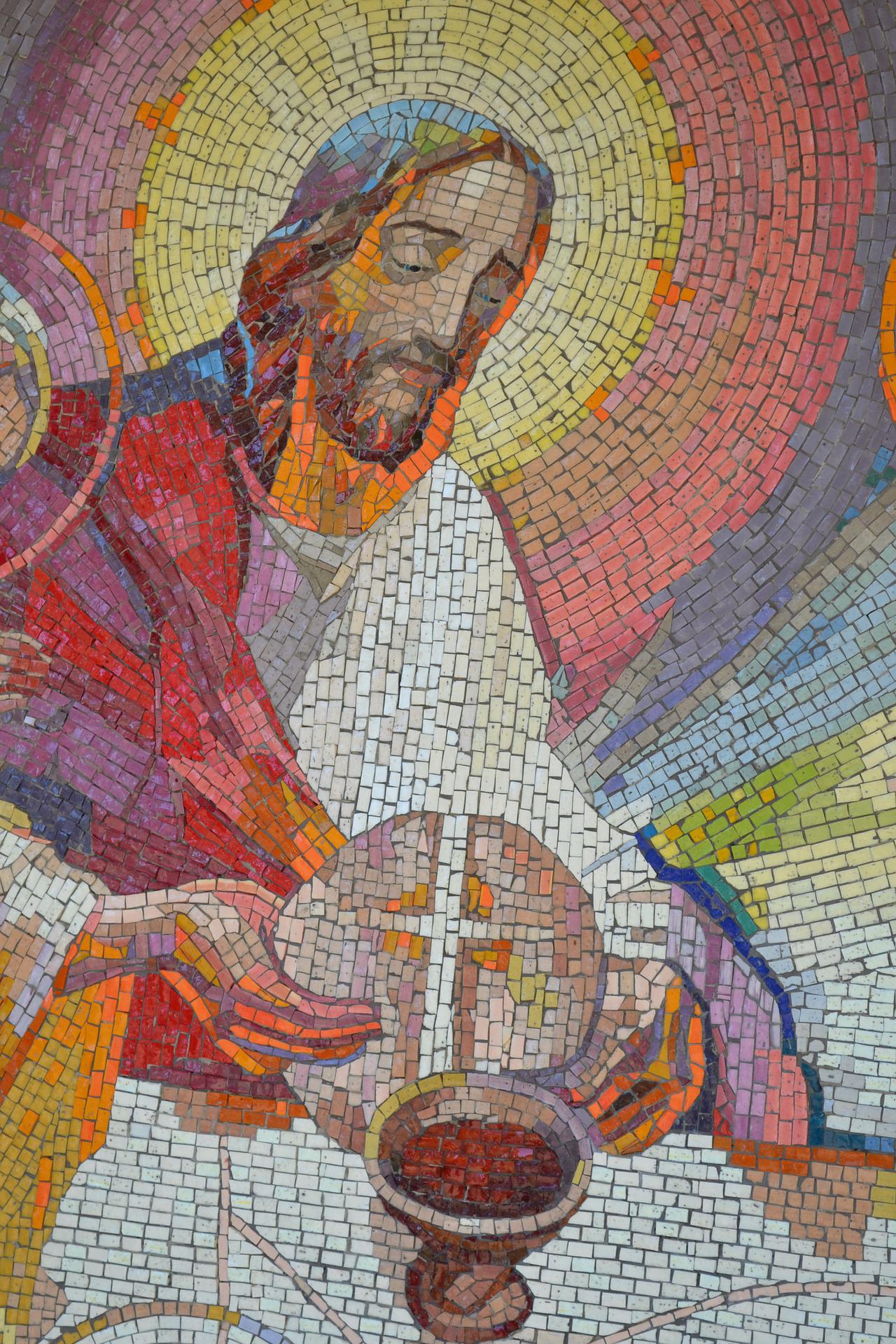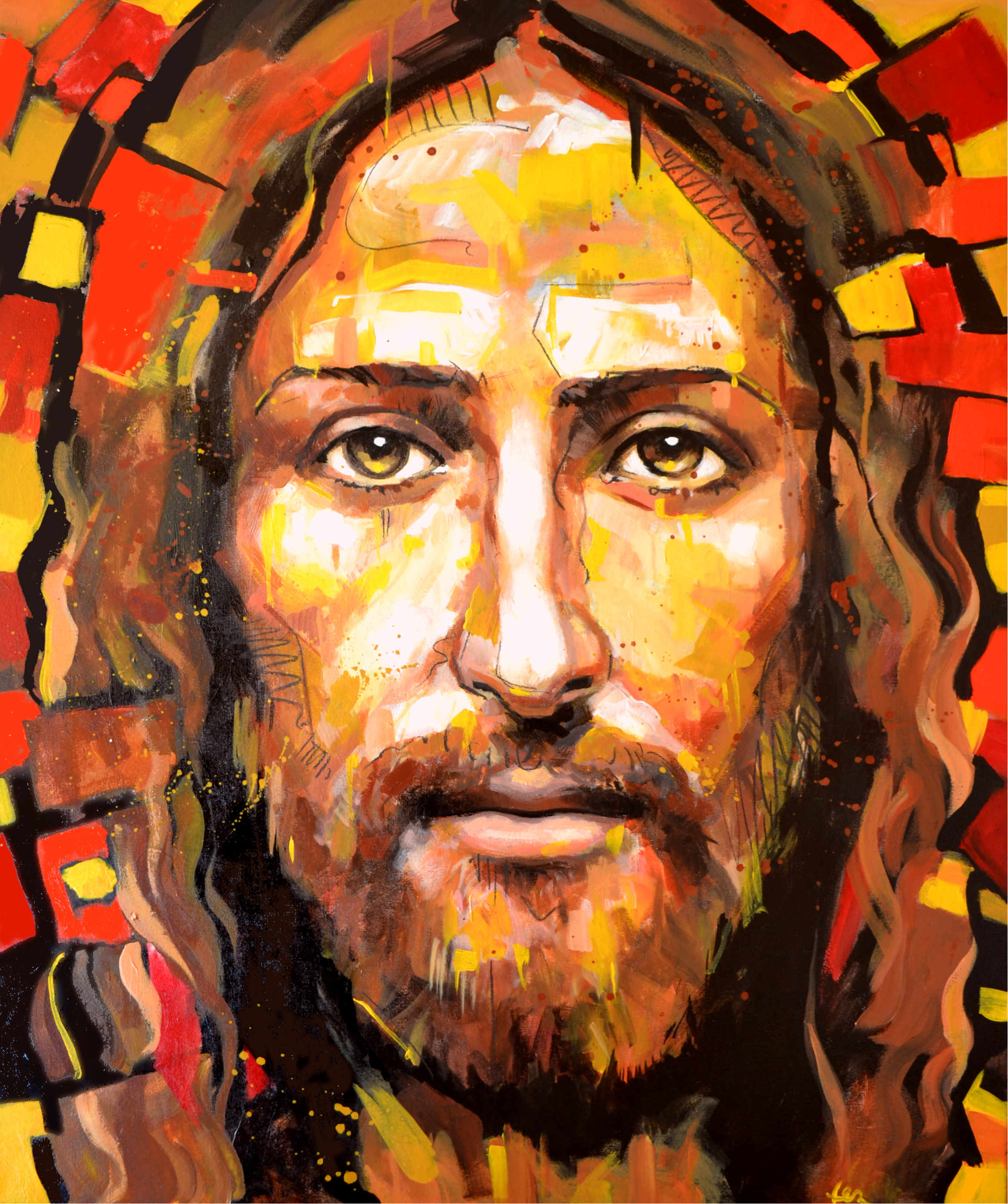Wow. As I was reflecting on the gospel reading for today, it struck me how phenomenal it must have been for the parents in Jesus’ time to be able to bring their children to Christ “in person.”
How can we replicate that kind of encounter when Jesus is no longer preaching at a nearby synagogue or eating dinner in a neighbor’s home? When Jesus left the earth, He knew He would have to provide a way for us to come into relationship with Him and remain in relationship with Him. He actually said at the Last Supper, “It is better for you that I go.” (Jn 16:7) How could Christ leaving be better than Christ staying? Jesus had a plan.
Christ makes himself available to us and to our children the same way he made himself available to the earliest Christians. The Holy Spirit, the second person of the Trinity, comes to live inside of us and transform us through the sacraments, through prayer, and through communion with others. It always comes back to the basics!
So how do we bring our kids to Christ through the sacraments? By bringing them to the Catholic Church to be baptized and confirmed and by continually helping them understand and live out their baptismal promises. We bring them to Mass at least every Sunday and Holy Day and teach them how to receive Holy Communion worthily. As a parent, I have found frequent use of the sacrament of reconciliation to be a game changer for kids to live out their faith. No amount of church-going and do-gooding can bring us close to Jesus when we have barriers of sin that we have put in place.
How do we bring our children to Christ through prayer? Children are automatically inclined to God and they learn to pray easily, but they need to be taught. As far as rote prayer goes, their memory is remarkable! When my own children were young, we often prayed a family rosary, and my children could all lead the rosary to some degree by the time they were three. Slowly, they learned to pray with and memorize Scripture. But the best way to teach our children to pray is to pray ourselves, often and from the heart, with them and in front of them.
How do we bring our children to God through communion with others? It is difficult for children to create meaningful interpersonal connections when their eyes are continually fixed on a screen. Beside this, many children are so busy with school and “activities” that they have no time or interest in talking to Grandpa or singing in the church choir. Making connections with others, and especially serving others, is a primary way to encounter Christ, but in today’s society, it doesn’t “just happen.” Parents must intentionally help their children make connections with others and become less focused on themselves.
Imagine if the parents in today’s Gospel story had stayed at home, saying, “Oh, we will visit Jesus tomorrow. The baby is sleeping, the kids are playing quietly, and I have so many chores to finish.” Maybe they realized tomorrow might be too late.
We must bring our children to Christ today. He is waiting to show the “little ones the mystery of the Kingdom.”
¡Que increíble! Mientras reflexionaba sobre la lectura del evangelio de hoy, me llamó la atención cuán fenomenal debe haber sido para los padres en el tiempo de Jesús poder llevar a sus hijos a Cristo “en persona”.
¿Cómo podemos replicar ese tipo de encuentro cuando Jesús ya no está predicando en una sinagoga cercana o cenando en la casa de un vecino? Cuando Jesús dejó la tierra, sabía que tendría que proporcionarnos una manera de entrar en una relación con Él y permanecer en una relación con Él. De hecho, dijo en la Última Cena: “Es mejor para ti que yo me vaya”. (Jn 16,7) ¿Cómo podría ser mejor que Cristo se fuera que que Cristo se quedara? Jesús tenía un plan.
Cristo se pone a disposición de nosotros y de nuestros hijos del mismo modo que se puso a disposición de los primeros cristianos. El Espíritu Santo, la segunda persona de la Trinidad, viene a vivir dentro de nosotros y nos transforma a través de los sacramentos, de la oración y de la comunión con los demás. ¡Siempre vuelve a lo básico!
Entonces, ¿cómo llevamos a nuestros hijos a Cristo a través de los sacramentos? Trayendolos a la Iglesia Católica para ser bautizados y confirmados y ayudándolos continuamente a entender y vivir sus promesas bautismales. Los llevamos a Misa al menos todos los domingos y días festivos y les enseñamos cómo recibir la Sagrada Comunión dignamente. Como padre, he descubierto que el uso frecuente del sacramento de la reconciliación cambia las reglas del juego para que los niños vivan su fe. Ninguna cantidad de ir a la iglesia y hacer el bien puede acercarnos a Jesús cuando tenemos barreras de pecado que hemos puesto en su lugar.
¿Cómo llevamos a nuestros hijos a Cristo a través de la oración? Los niños se inclinan automáticamente hacia Dios y aprenden a orar fácilmente, pero necesitan que se les enseñamos. Con respecto a la oración de memoria, ¡su memoria es notable! Cuando mis propios hijos eran pequeños, a menudo rezábamos un rosario en familia, y todos mis hijos podían dirigir el rosario hasta cierto punto cuando tenían tres años. Lentamente, aprendieron a orar y memorizar las Escrituras. Pero la mejor manera de enseñar a orar a nuestros hijos es orar nosotros mismos, a menudo y de corazón, con ellos y delante de ellos.
¿Cómo llevamos a nuestros hijos a Dios a través de la comunión con los demás? Es difícil para los niños crear conexiones interpersonales significativas cuando sus ojos están continuamente fijos en una pantalla. Además de esto, muchos niños están tan ocupados con la escuela y las “actividades” que no tienen tiempo ni interés en hablar con el abuelo o cantar en el coro de la iglesia. Hacer conexiones con los demás, y especialmente servir a los demás, es una forma principal de encontrar a Cristo, pero en la sociedad actual, no es algo que “sucede de la nada”. Los padres deben ayudar intencionalmente a sus hijos a establecer conexiones con los demás y a centrarse menos en sí mismos.
Imagínese si los padres en la historia del Evangelio de hoy se hubieran quedado en casa, diciendo: “Oh, visitaremos a Jesús mañana. El bebé está durmiendo, los niños están jugando tranquilamente y tengo muchas tareas que terminar”. Tal vez se dieron cuenta de que mañana podría ser demasiado tarde.
Debemos llevar a nuestros hijos a Cristo hoy. Está esperando para revelar “los misterios del Reino a la gente sencilla”.
 Christine Hanus is a thwarted idealist who, nevertheless, lives quite happily in Upstate NY. She is a wife and mother of five grown children.
Christine Hanus is a thwarted idealist who, nevertheless, lives quite happily in Upstate NY. She is a wife and mother of five grown children.
Feature Image Credit: Kampus Production, www.pexels.com/photo/father-and-son-at-the-beach-8623364/

